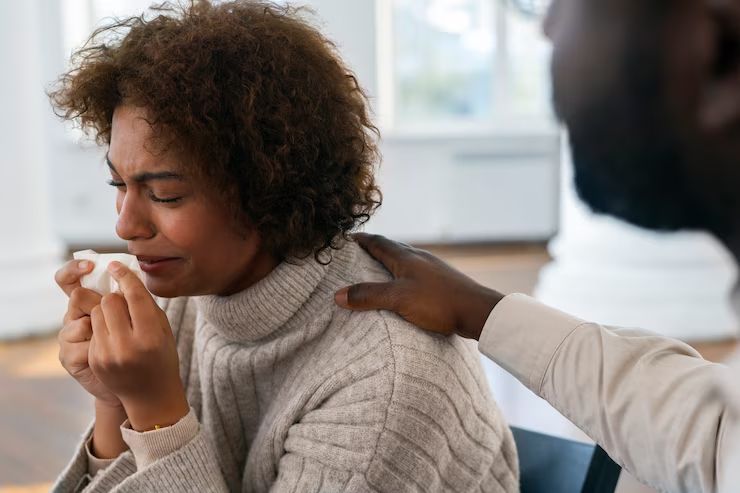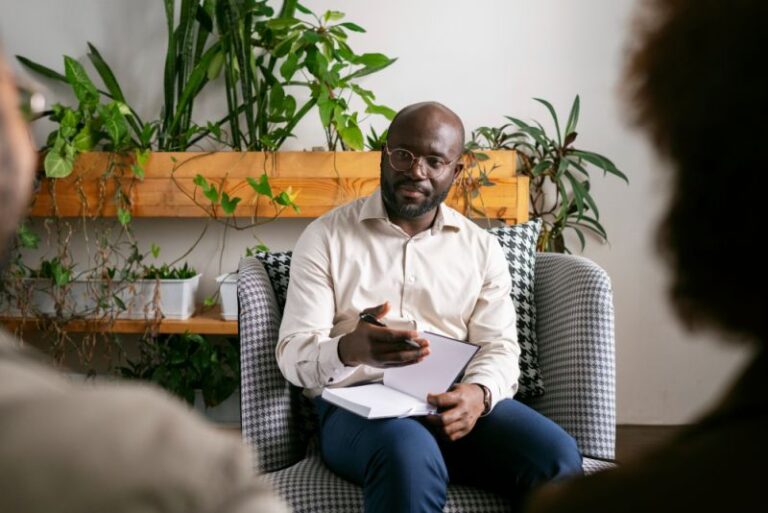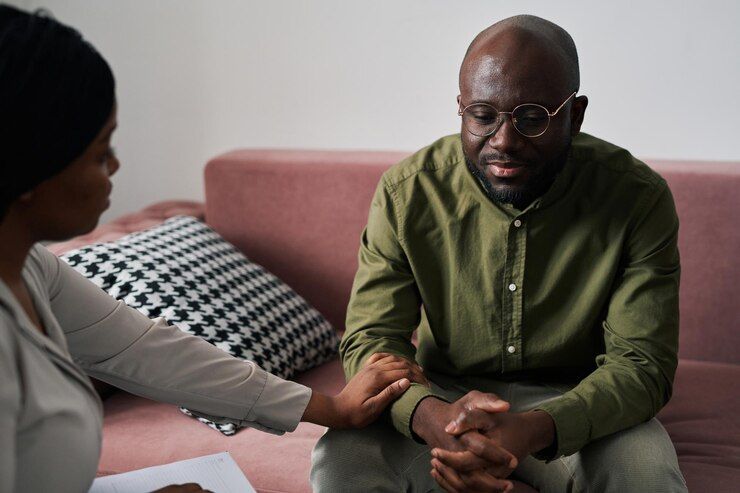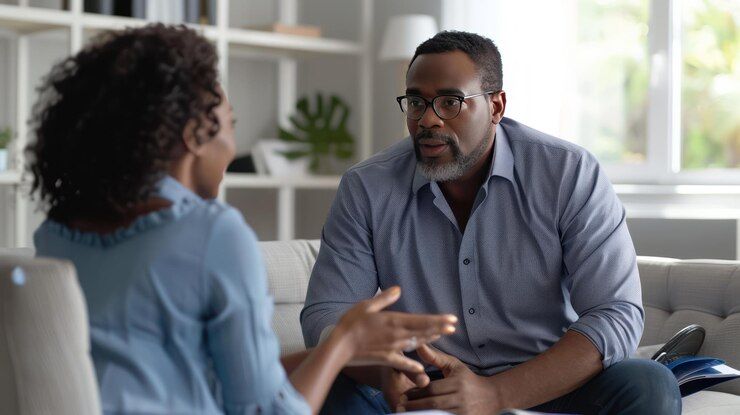Are you feeling overwhelmed but unsure if it’s serious enough to see a therapist?
You’re not alone.
Call or WhatsApp HCCI today: 0244598994
In Ghana and many other parts of the world, people are often taught to “be strong,” “pray through it,” or “talk to a friend” when life feels hard. While these can be helpful, there are times when what you really need is professional help.
Therapy is not only for people with severe mental illness—it’s for anyone who wants to feel better, think clearer, and live more peacefully. Knowing when to seek therapy can make the difference between surviving and truly healing.
In this post, we’ll walk you through how to know if you need therapy, the signs you shouldn’t ignore, and why reaching out for help is a powerful act of self-care—not weakness.
Why People Often Avoid Therapy in Ghana
Before diving into the signs, it’s important to understand the common barriers that stop people in Ghana from seeking therapy:
- Cultural stigma: Many people still see therapy as a last resort or something only “crazy” people need.
- Spiritual misconceptions: Some believe prayer alone should solve emotional pain, ignoring the value of professional counseling.
- Lack of awareness: Many simply don’t know what therapy is or how it works.
But times are changing. As mental health awareness grows in Ghana, more people are choosing therapy to address depression, anxiety, trauma, relationship problems, and other challenges. And you can too.
How to Know If You Need Therapy
1. You Feel Overwhelmed Most of the Time
Do you wake up with a heavy heart and feel constantly exhausted—even without physical activity? Feeling persistently overwhelmed is one of the most common signs that your emotional health is under strain.
This can show up as:
- Difficulty concentrating
- Short temper
- Constant fatigue or lack of motivation
- Feeling like you’re drowning in responsibilities
Therapy helps you untangle your thoughts, release inner pressure, and rebuild your emotional balance.
2. Your Sadness or Worry Doesn’t Go Away
Everyone feels sad or anxious sometimes. But if your low mood or fear continues for more than two weeks, disrupts your daily life, or seems to come without a clear reason, it’s time to take it seriously.
You may notice:
- You’re withdrawing from people
- You cry often or feel numb
- You have a constant knot in your stomach or racing thoughts
- You’re always expecting something bad to happen
Therapists are trained to help you identify underlying causes and teach you coping tools that work.
3. You’ve Experienced Trauma You Haven’t Healed From
Many Ghanaians have been through emotionally painful experiences—abuse, abandonment, violence, grief, betrayal—but never received help.
Unhealed trauma often hides in the body and comes out as:
- Nightmares or flashbacks
- Emotional shutdown or anger
- Fear of getting close to people
- Feeling “stuck” or constantly reliving the past
You don’t have to carry the weight of trauma alone. Therapy helps you release pain, process emotions, and gently reframe your story.
4. Your Relationships Keep Falling Apart
Do you find it hard to maintain healthy relationships with family, friends, or romantic partners? Do you always feel misunderstood or like you’re walking on eggshells?
You may be experiencing:
- Difficulty trusting others
- Frequent arguments and emotional outbursts
- People-pleasing followed by resentment
- Feelings of loneliness even when surrounded by others
Therapy provides tools to improve communication, set boundaries, and develop healthier emotional patterns.
5. You Feel Lost or Disconnected From Yourself
Sometimes, the most painful feeling is the quiet sense that you don’t know who you are anymore. You may feel emotionally numb, directionless, or like you’re living someone else’s life.
If you’re constantly asking:
- “What’s wrong with me?”
- “Why can’t I feel happy?”
- “Is this all there is to life?”
Then therapy can help you reconnect with your identity, purpose, and inner truth.
Also read: Top 10 Benefits of Counselling Services in Ghana
6. You’re Relying on Unhealthy Coping Mechanisms
When we don’t have the right emotional tools, we often try to escape pain through destructive means.
This might include:
- Excessive alcohol or substance use
- Overeating or skipping meals
- Constant phone scrolling or binge-watching
- Avoiding responsibilities or isolating yourself
These may provide temporary relief but deepen emotional wounds in the long run. A therapist can help you replace these habits with healthier, sustainable coping strategies.
7. You’ve Been Through a Major Life Change
Even positive life events—like getting married, starting a new job, becoming a parent, or relocating—can cause emotional stress.
And painful transitions like divorce, miscarriage, job loss, or the death of a loved one often leave deep emotional scars.
If you’re struggling to adjust or feel overwhelmed by a recent change, therapy offers support, perspective, and healing.
8. Your Physical Health Is Suffering for No Clear Reason
Unresolved emotional issues often manifest in the body. If doctors say you’re fine, but you’re still feeling unwell, therapy might help uncover the root.
Common signs include:
- Frequent headaches or stomach problems
- Sleep issues (insomnia or oversleeping)
- Body aches with no clear medical cause
- Changes in appetite or weight
Your body is speaking—therapy helps you listen.
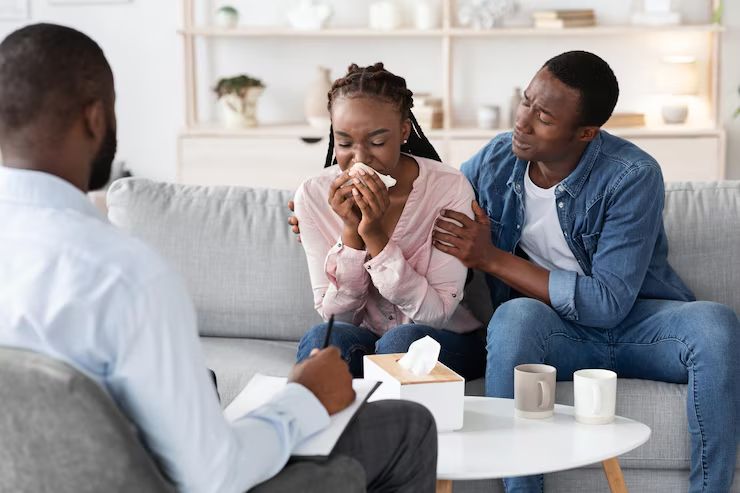
Therapy Isn’t a Sign of Weakness—It’s a Path to Strength
There’s a myth that strong people don’t need help. But the truth is, real strength is knowing when you need support.
Therapy is not about labeling you. It’s about helping you:
- Understand yourself better
- Let go of what’s been holding you back
- Create a more peaceful, purposeful life
In Ghana, centers like Holistic Counseling and Training Consult offer culturally sensitive, confidential, and professional support to individuals from all walks of life.
How to Take the First Step
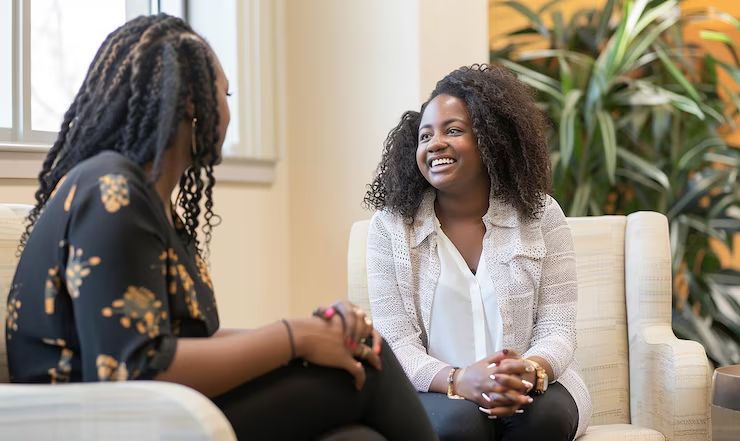
If any of the signs above resonate with you, it’s okay to seek help. You can:
Call a therapist or wellness center near you
Schedule an online consultation
Talk to a trusted mentor or church leader about your struggles
Visit Holistic Counseling and Training Consult for in-person or virtual sessions tailored to your needs
Remember: You don’t have to wait until you break down to get help. Healing starts when you reach out.
Final Thoughts: Listen to Your Inner Voice
We all go through tough seasons. But when your emotional struggles start affecting your daily life, your relationships, and your sense of self, it’s time to pay attention.
Therapy isn’t a last resort—it can be your first step toward healing, clarity, and wholeness.
If you’ve been wondering, “Do I really need therapy?”—chances are, you already know the answer deep down.
Don’t ignore the signs. Listen. Take action. Your well-being matters.
Ready to talk to someone?
Reach out to Holistic Counseling and Coaching Institute today.
We offer professional therapy for individuals, couples, and families across Ghana—designed to meet you where you are and help you move forward.
Would you like a matching meta title, meta description, and keyword recommendations for this post to help it rank even faster on your blog? I can prepare those next.

